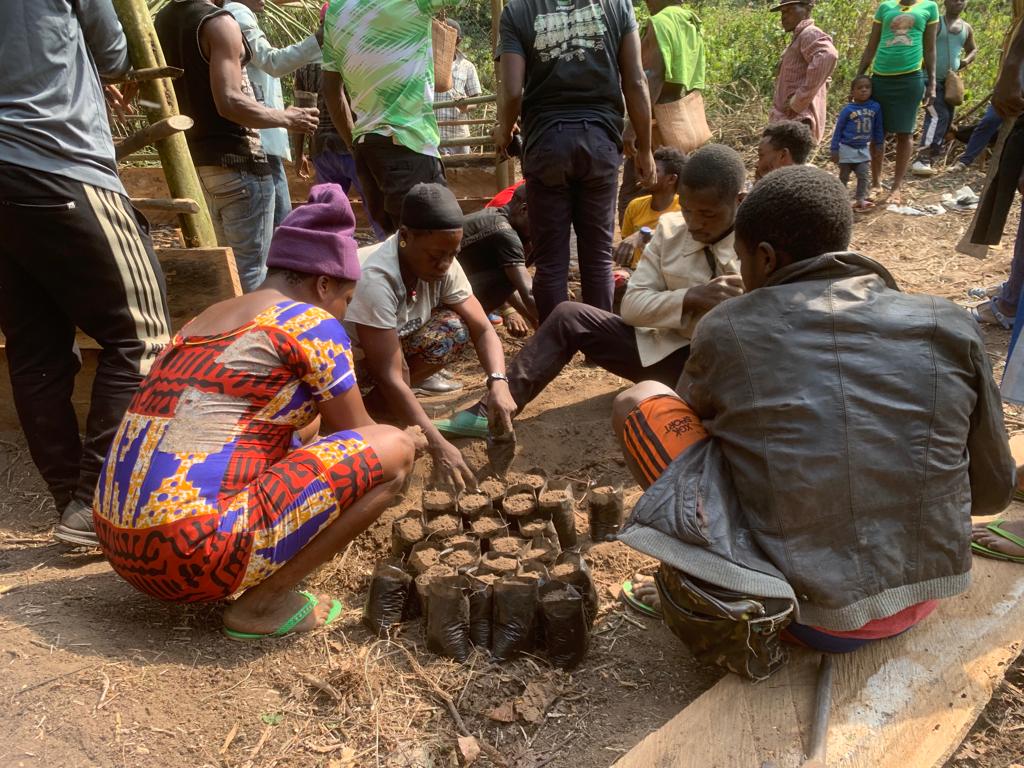
Nurturing Nature, Nurturing Lives: The Key Role of Food Security in Conservation
Conservation efforts are crucial for preserving our planet’s biodiversity, but they must also take into account the essential needs of local communities. One of the most fundamental of these needs is food security. When communities lack access to food, they may resort to unsustainable practices that harm the environment. By promoting sustainable agriculture, supporting local food production, and empowering communities, conservation efforts can alleviate pressure on natural resources, especially forests.
CEPOW Cameroon, a leading organization in community-driven conservation, recognizes the fundamental connection between food security and the preservation of biodiversity. Their innovative strategy in the Kagwene Wildlife Sanctuary aims to educate local communities about the importance of protecting the Cross River Gorillas while simultaneously addressing their food and income needs.
CEPOW Cameroon’s projects place great emphasis on educating local communities about the significance of conserving the forest habitat. By raising awareness about the endangered Cross River Gorillas, they instill a sense of responsibility and pride within community members. When people understand the interdependence between their own well-being and the well-being of these majestic creatures, they are more likely to actively participate in conservation efforts.
Recognizing that food security plays a vital role in attaining successful conservation outcomes, CEPOW Cameroon has taken a proactive approach. They have established five nurseries within two local communities on nurturing Non-Timber Forest Products (NTFPs). This initiative not only helps replenish the forest but also provides the local communities with a sustainable source of food and income. By teaching community members how to nurse and plant these valuable resources, the organization empowers them to become self-reliant while reducing their dependency on the forest for sustenance.
Sustainable conservation practices must align with the economic realities of local communities. By empowering individuals through the cultivation of NTFPs, CEPOW Cameroon ensures that conservation efforts do not compromise their livelihoods. The income generated from selling these products helps create economic stability, reducing the pressure on the forest for survival. This integrated approach effectively establishes a connection between economic well-being and environmental preservation.
By promoting proactive and innovative strategies in conservation, CEPOW Cameroon harnesses the indispensable nature of the right to food security. Their commitment to addressing the immediate needs of local communities while promoting conservation is a shining example of how we can achieve a sustainable future for both people and the planet. This holistic approach not only ensures the long-term protection of the Cross River Gorillas but also fosters a harmonious coexistence between humans and nature.
By Kum Carlos.